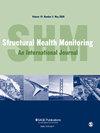基于重构误差和结构相似度的无监督卷积自编码器桥异常检测
IF 5.7
2区 工程技术
Q1 ENGINEERING, MULTIDISCIPLINARY
Structural Health Monitoring-An International Journal
Pub Date : 2023-11-04
DOI:10.1177/14759217231200096
引用次数: 0
摘要
本文提出了一种利用无监督卷积自编码器的重构误差和结构相似性的桥梁异常检测方法。桥梁结构损伤的存在通常会导致其振动信号的变化,因此,使用这些信号进行结构损伤检测(SDD)已经得到了广泛的研究,许多方法依赖于监督学习。然而,现有的基于监督学习的SDD方法需要事先了解损伤状态,不能实时处理监测数据,限制了其在现役桥梁中的应用。为了解决这一挑战,作者提出使用卷积自编码器作为实时振动信号的重建算法。自动编码器使用正常信号进行训练,然后用于重建新的输入(正常或异常)。然后根据重构结果计算重构误差和结构相似度两个损伤指标,并聚类检测异常信号。将该方法应用于旧ADA桥的各种异常检测,结果准确率为100%,与其他对照实验相比,准确率提高了10%左右。这些结果证明了该方法的有效性,自编码器对正常信号的重建效果很好,对异常信号的重建效果很明显。通过斜拉桥和拱桥实例验证了该方法在桥梁异常检测中的广泛适用性。本文章由计算机程序翻译,如有差异,请以英文原文为准。
Bridge anomaly detection based on reconstruction error and structural similarity of unsupervised convolutional auto-encoder
This study presents a novel bridge anomaly detection approach that employs the reconstruction error and structural similarity of an unsupervised convolutional auto-encoder. The presence of structural damage in a bridge typically results in changes in its vibration signals, and thus, the use of these signals for structural damage detection (SDD) has been widely investigated, with many methods relying on supervised learning. However, such existing SDD methods based on the supervised learning require prior knowledge of the damage states and cannot process monitoring data in real-time, thereby limiting their application to in-service bridges. To address this challenge, the authors propose the use of a convolutional auto-encoder as the reconstruction algorithm for real-time vibration signals. The auto-encoder is trained using normal signals and then used to reconstruct new inputs (either normal or abnormal). Two damage indicators (reconstruction error and structural similarity) are then calculated based on the reconstruction results and clustered to detect abnormal signals. The proposed approach was applied to the detection of various abnormalities in the old ADA Bridge, the results were 100% accurate, and about a 10% increase in accuracy was observed when compared to other control experiments. These results demonstrate the effectiveness of the proposed approach, with the auto-encoder achieving excellent reconstruction results for normal signals and clear discrepancies for abnormal signals. The proposed method was also validated on a cable-stayed bridge and an arch bridge, demonstrating its wide applicability in bridge anomaly detection.
求助全文
通过发布文献求助,成功后即可免费获取论文全文。
去求助
来源期刊
CiteScore
12.80
自引率
12.10%
发文量
181
审稿时长
4.8 months
期刊介绍:
Structural Health Monitoring is an international peer reviewed journal that publishes the highest quality original research that contain theoretical, analytical, and experimental investigations that advance the body of knowledge and its application in the discipline of structural health monitoring.

 求助内容:
求助内容: 应助结果提醒方式:
应助结果提醒方式:


